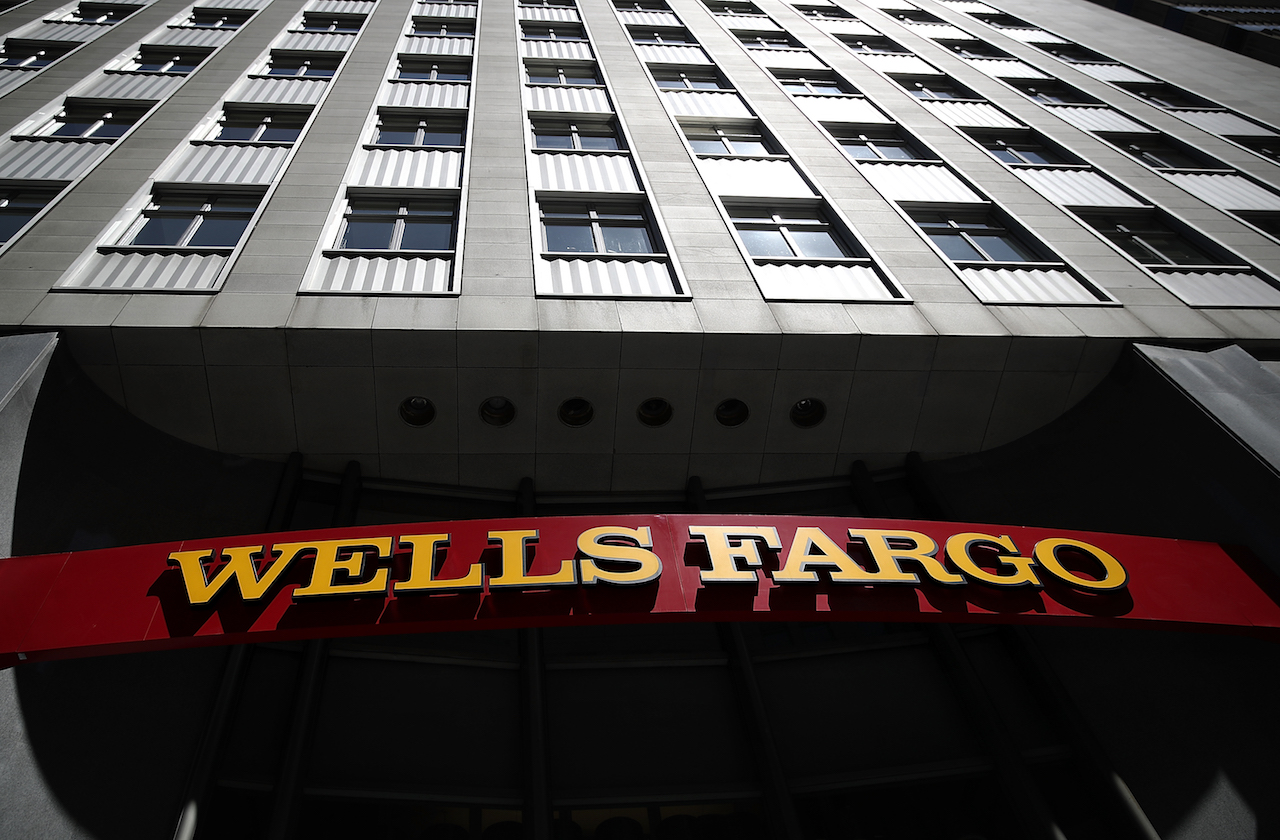10 Reasons Millennials Should Pledge to Own Stocks
Something's wrong with the retirement nest eggs of millennials.


Profit and prosper with the best of Kiplinger's advice on investing, taxes, retirement, personal finance and much more. Delivered daily. Enter your email in the box and click Sign Me Up.
You are now subscribed
Your newsletter sign-up was successful
Want to add more newsletters?

Delivered daily
Kiplinger Today
Profit and prosper with the best of Kiplinger's advice on investing, taxes, retirement, personal finance and much more delivered daily. Smart money moves start here.

Sent five days a week
Kiplinger A Step Ahead
Get practical help to make better financial decisions in your everyday life, from spending to savings on top deals.

Delivered daily
Kiplinger Closing Bell
Get today's biggest financial and investing headlines delivered to your inbox every day the U.S. stock market is open.

Sent twice a week
Kiplinger Adviser Intel
Financial pros across the country share best practices and fresh tactics to preserve and grow your wealth.

Delivered weekly
Kiplinger Tax Tips
Trim your federal and state tax bills with practical tax-planning and tax-cutting strategies.

Sent twice a week
Kiplinger Retirement Tips
Your twice-a-week guide to planning and enjoying a financially secure and richly rewarding retirement

Sent bimonthly.
Kiplinger Adviser Angle
Insights for advisers, wealth managers and other financial professionals.

Sent twice a week
Kiplinger Investing Weekly
Your twice-a-week roundup of promising stocks, funds, companies and industries you should consider, ones you should avoid, and why.

Sent weekly for six weeks
Kiplinger Invest for Retirement
Your step-by-step six-part series on how to invest for retirement, from devising a successful strategy to exactly which investments to choose.
Something's wrong with the retirement nest eggs of millennials. If they have portfolios at all, too many of them look like those of their parents and grandparents—not in the amount of money they hold but in how conservatively they're invested.
Despite a spectacular advance that has seen the U.S. stock market more than triple since March of 2009, surveys show that many younger people are reluctant to own stocks, including in their 401(k) retirement plans. That means they've missed out on the market's huge gains. A survey done by the Transamerica Center for Retirement Studies early this year found that nearly one in four respondents in their twenties had the majority of their nest egg in bonds, money market funds or other low-return, relatively safe options. By contrast, just 13% of people in their thirties and forties were positioned so conservatively.
Why have the young shied away from stocks? Some experts say the severity of the 2007-09 market crash, mistrust of Wall Street, the weak economic recovery, depressed wages and high student-debt loads all have soured millennials on risk-taking. Yet millennials are exactly at the age when they should be taking more risk with whatever they can afford to save.
Here are 10 reasons millennials need to be in stocks for the long haul, despite what they may think.

1) You've Got a Lot of Living to Do
- You're young, adventurous and have big dreams. Don't wimp out when it comes to investing. Time is the stock investor's greatest ally. And if you're young, time is the one thing you have plenty of. Ask 65-year-olds what they wish they had done differently at age 25, and many will say they should have invested. The more time you have, the greater the potential for a diversified stock portfolio to blossom and for business success stories (such as Apple) to more than make up for the inevitable failures (such as Eastman Kodak). What's more, "The sooner you start saving for retirement, the less overall you'll have to save, thanks to the magic of compounding," says Maria Bruno, senior analyst in the investment counseling unit at fund giant Vanguard Group. Compounding simply refers to investment returns building on themselves over time, as your nest egg grows.
Time provides another advantage. The economy fluctuates between growth and contraction. Likewise, stock prices rise and fall. (Hey, that's capitalism!) But when you invest in stocks on a regular basis, as you would through a 401(k) plan, the amount you invest buys more shares when prices are low and fewer shares when prices are high. This is "dollar-cost averaging,” and it’s a proven way to accumulate stock wealth. And it's why millennials should hope for, not dread, stock market pullbacks at this stage of life. Remember: The goal is to buy low and sell high. Bear markets are your friends.

2) Bonds: Great for Grandpa, a Bummer for You
- Interest rates are very low and may stay that way for years. If they do, bonds, cash and similar conservative investments will continue to produce scant returns. Laura Tarbox, head of the Tarbox Group, a financial planning firm in Newport Beach, Calif., notes how "in the last few years, so many people thought interest rates would go up and stocks would crash." Instead, rates have remained near record lows in much of the world, reflecting slow economic growth, high investor demand for "safe" bonds and generally low inflation. Believe it or not, in the early 1980s your grandparents could earn 15% in annual interest on a 10-year U.S. Treasury bond. The yield now: a paltry 2.1%.
You may keep hearing, though, that the Federal Reserve wants to start raising interest rates. It does, but it’s waiting for the economy to start growing at a healthier pace. Earlier this year, it looked as if the Fed would begin lifting its benchmark short-term rate in June from the near-zero level it has held since the financial crisis. But the U.S. economy struggled again in the first quarter, and now most experts believe the Fed will delay any increase until at least September. And even when the central bank begins pushing rates up, it's likely to move slowly—“one and done” is one popular prediction among Fed watchers. The point is that investors hoping to earn high-single-digit yields again on bank savings or bonds may wait in vain. Also note that bonds may not be as safe as you think: When market interest rates rise, fixed-rate bonds typically drop in value.

3) A Silent Thief Stalks Your Savings
- This thing called inflation will quietly pilfer your nest egg. Inflation, like interest rates, is low right now, at least as the government officially measures prices in the economy. But any level of inflation erodes the purchasing power of your money over time. Say your cost of living increases just 2% a year for the next 10 years. That would mean that you'll need $1.22 a decade from now to buy what $1 buys today. If your investments don't rise more than inflation, your purchasing power will decline. "You may think you're being safe by staying out of the stock market, but you may actually be taking more risk by falling behind inflation," says Bruno, of the Vanguard Group.
(See the 7 Deadly Sins of Investing for more.)
Gold and other commodities are known as inflation hedges. But stocks also have done a good job of beating inflation over time. Why? Because stocks give you part ownership of a business, and if inflation is pushing up prices of things across the board, the value of many businesses (land, equipment, ideas and so on) will rise, too. Also, as their costs increase, companies seek to raise the prices of their own goods or services. But it's also true that stocks can be a poor hedge when inflation is rising rapidly in the short term, driving interest rates up as well. The good news is that the sweet spot for stocks as a hedge is when inflation is low and stable—the situation we're in now.

4) You Need a Raise
- Everybody knows wages aren't rising much. It has been a different story with dividends. As companies grow and generate bigger profits, they often reward shareholders by raising their cash dividend payments. That puts more money directly in shareholders' pockets each year, or allows them to put the cash toward buying additional shares. Record corporate earnings have translated into robust dividend growth in recent years. The annualized dividend rate on Standard & Poor's 500-stock index, which tracks mostly large, mostly U.S.-based companies, has jumped 67% since 2009. Not many people can say the same for their salaries.
(See the Best Dividend Stocks of the S&P 500 for more.)
Consider: Diversified manufacturer 3M Co. has raised its dividend every year for the past 56 years. It currently pays $4.10 per share in annual dividends. Investors who've owned the stock since 2000 have seen their dividends alone rise 253%—in addition to the more than 300% rise in the stock price during that period. That's the concept of "total" return: dividends plus capital appreciation. There is risk, too: If a company's profitability plunges, it may cut its dividend payments. That happened with many banking firms, in particular, during the financial crisis. Still, most major companies strive to avoid reducing dividends because they know it's a blow to shareholders who come to rely on that income.

5) Uncle Sam Has a Soft Spot for Stocks
- Washington will help you make money, by taking less. If you have the wherewithal now or in the future to own investments outside of a 401(k) plan or an IRA, you’ll find that federal tax law provides a big advantage to stocks over bonds. If your stocks pay dividends, the maximum federal tax rate on those payments is either 0% or 15% for most people and 23.8% for the highest earners. By contrast, the top tax rate on any interest income, including from bonds or bank savings, is 43.4%.
(See the Most Overlooked Tax Breaks for Investors for more.)
What's more, if your stocks appreciate over time, when you eventually sell, the maximum capital gains tax rate is the same as the dividend tax rate for most people: 0% or 15%. That means you keep most or all of any long-term gain. Bonds, too, can provide capital gains if market interest rates fall. But with rates already so low, the potential for large capital gains on bonds is limited.

6) Two Words: Basic Diversification
- Smart investing starts with admitting that you can't predict the future—and that you shouldn't try. An investor survey done by the Transamerica Center for Retirement Studies early this year found that a stunning 37% of twentysomethings said they had "no level of understanding of asset allocation principles." Yet it's pretty simple: Because you can't know which investments will do best in the future, it makes sense to spread your money around in a mix of them. To quote your grandparents, diversification is making sure all of your eggs aren't in one basket. If you don't own stocks, you're ignoring one of the three baskets that make up a basic investment portfolio: stocks, bonds and cash. Why would you rely solely on the other two?
(See How to Be a Better Stock Investor for more.)
Tarbox says younger people understandably may be intimidated by financial markets and fear that investing is too complicated for them to grasp. Yet history shows that successful investing is rooted in "a few simple lessons that keep coming up," she says. First among them is basic diversification.

7) Everybody Deserves a Piece of the Pie
- Stocks give you a direct stake in the economy. When you own shares in a company, you legally own a slice of that business and therefore a slice of the economy. If the economy grows and your company grows with it, the stock price should increase over time as well. Along the way, many companies directly share profits with their investors by paying them regular cash dividends that also can increase with time. By contrast, you can't participate in economic growth by owning bonds or a bank account. They pay you a fixed rate of interest, and no more—regardless of how well the company issuing the bond performs or how profitable the bank becomes.
Of course, with stocks the potential for growth also comes with the risk of loss if the company, the economy or both stumble. That's the trade-off. But over long periods, the payoff from stocks has been substantial. One of the easiest ways to own a broad-based piece of the economy is via a diversified "index" fund, such as one that is designed to mimic the performance of Standard & Poor’s 500-stock index, which consists of 500 mostly large, mostly U.S.-based businesses. From the start of 1926 through March 31 of this year, the index delivered an average annual total return—meaning both appreciation and dividends—of 10.1%, according to Morningstar’s Ibbotson unit. That handily beat the annualized returns of 5.7% and 3.5%, respectively, from intermediate-term government bonds and supersafe short-term Treasury bills.

8) Investing Is Like Kickstarter, but With Rewards
- You never know what kind of amazing business ideas are about to explode onto the scene. These are exciting times in so many industries, from tech to health care to transportation. What will be the next Google? The next Starbucks? The next Biogen? One way to cash in is to be an employee of an up-and-coming business. Barring that, share ownership offers the chance to participate in business concepts that may be the Next Big Ideas. If you don't own stocks, you may forever be on the outside looking in.
(See the 15 Best Stocks of the 21st Century for more.)
Investing also allows you to make a statement with your money—for example, by owning shares of companies involved in green energy or those that pledge social responsibility. It's admirable that people send money to entrepreneurs on funding Web sites such as Kickstarter. But those entrepreneurs have no obligation to repay their financiers. On the other hand, investing in stock helps support a business and makes you a direct beneficiary if the business succeeds.

9) Investing Abroad May Help Your Money Grow, Too
- Stocks give you a way to search the planet for opportunity. With the Internet, the world has never been more connected and business has never been more global. Likewise, investing abroad is simple via mutual funds, exchange-traded funds and individual stocks. Investing abroad also carries special risks, however. One is geopolitical risk—say, the overthrow of the government in a nation where you invest. Another is currency risk: If you own stocks in a country whose currency is depreciating versus the dollar, the value of your shares will also depreciate.
(See The World's Greatest Stocks for more.)
Over the past five years, foreign stocks overall have been duds for U.S. investors compared with domestic shares. During that period, the typical mutual fund that invests in a diversified bundle of large-company foreign stocks gained 6.9% per year on average, and the typical diversified emerging-markets stock fund earned just 2.6% annualized. By contrast, the mutual funds that focus on large U.S. companies returned an average of 12.9% per year (figures are through April 30). So why bother with foreign stocks at all? One reason gets back to basic diversification: U.S. stocks account for about half of the total market value of stocks worldwide. So ignoring foreign stocks is ignoring half of the potential opportunities out there, at a time when technology is allowing creativity to bloom irrespective of national borders. A second reason: Lagging foreign markets may be a better place to pick up long-term bargains than the U.S. market, where shares remain near record highs.

10) You Can Make Wall Street Work for You
- It's OK to distrust Wall Street, but avoiding markets entirely may hurt you more than them in the long run. Many people argue that markets are rigged. And yet it has never been easier or cheaper for the average person to invest intelligently. The Internet has made a gargantuan amount of free information available to all who want to learn about finance.
As for costs, as recently as 1975 Wall Street charged individuals outrageous fixed commissions to buy or sell stocks or funds—fees that often ran hundreds of dollars per trade. Today online brokers will do trades for as little as $4.95. Likewise, the average amount investors pay to own funds has declined over the years as many people have gravitated to low-fee index funds—funds designed to merely match a market benchmark. The recent boom in low-cost exchange-traded funds, or ETFs, has also meant less for Wall Street and more for investors.
But the biggest benefit for small investors, particularly young ones, may be the rise of 401(k) plans, IRAs and other retirement accounts, which provide immediate tax savings and allow your assets to grow tax-free until you begin pulling the money out. Or consider a Roth IRA or, if available through your employer, a Roth 401(k). These retirement-savings plans don’t provide an immediate tax break, but they do let you withdraw money tax-free in retirement.
(See our Special Report on Saving for Retirement for more.)
If you aren't sure which funds to buy in your savings plan, consider a so-called target-date fund, a one-stop solution that holds stocks and bonds and is designed to match the mix with your retirement date. Pick the fund whose name includes the year closest to your expected retirement date, presumably 2055 or later. Over time (but not for a while), the fund will gradually trim the amount it has in stocks, becoming more conservative as retirement approaches.
What's important is that you get started, even if you do so with just modest sums. And remember: If your employer matches the contributions you make to an account, failing to participate is like leaving free money on the table. Why on earth would you turn down free cash?
Profit and prosper with the best of Kiplinger's advice on investing, taxes, retirement, personal finance and much more. Delivered daily. Enter your email in the box and click Sign Me Up.

-
 Nasdaq Leads a Rocky Risk-On Rally: Stock Market Today
Nasdaq Leads a Rocky Risk-On Rally: Stock Market TodayAnother worrying bout of late-session weakness couldn't take down the main equity indexes on Wednesday.
-
 Quiz: Do You Know How to Avoid the "Medigap Trap?"
Quiz: Do You Know How to Avoid the "Medigap Trap?"Quiz Test your basic knowledge of the "Medigap Trap" in our quick quiz.
-
 5 Top Tax-Efficient Mutual Funds for Smarter Investing
5 Top Tax-Efficient Mutual Funds for Smarter InvestingMutual funds are many things, but "tax-friendly" usually isn't one of them. These are the exceptions.
-
 States That Tax Social Security Benefits in 2026
States That Tax Social Security Benefits in 2026Retirement Tax Not all retirees who live in states that tax Social Security benefits have to pay state income taxes. Will your benefits be taxed?
-
 My Four Pieces of Advice for Women Anxious About Handling Money
My Four Pieces of Advice for Women Anxious About Handling MoneyTalking about money can help you take control of your finances.
-
 What to Do With Your Tax Refund: 6 Ways to Bring Growth
What to Do With Your Tax Refund: 6 Ways to Bring GrowthUse your 2024 tax refund to boost short-term or long-term financial goals by putting it in one of these six places.
-
 What Does Medicare Not Cover? Eight Things You Should Know
What Does Medicare Not Cover? Eight Things You Should KnowMedicare Part A and Part B leave gaps in your healthcare coverage. But Medicare Advantage has problems, too.
-
 12 Great Places to Retire in the Midwest
12 Great Places to Retire in the MidwestPlaces to live Here are our retirement picks in the 12 midwestern states.
-
 15 Cheapest Small Towns to Live In
15 Cheapest Small Towns to Live InThe cheapest small towns might not be for everyone, but their charms can make them the best places to live for plenty of folks.
-
 15 Reasons You'll Regret an RV in Retirement
15 Reasons You'll Regret an RV in RetirementMaking Your Money Last Here's why you might regret an RV in retirement. RV-savvy retirees talk about the downsides of spending retirement in a motorhome, travel trailer, fifth wheel, or other recreational vehicle.
-
 Why Wells Fargo's Revenue Miss Isn't Worrying Wall Street
Why Wells Fargo's Revenue Miss Isn't Worrying Wall StreetWells Fargo is one of the best S&P 500 stocks Wednesday even after the big bank's top-line miss. Here's what you need to know.
